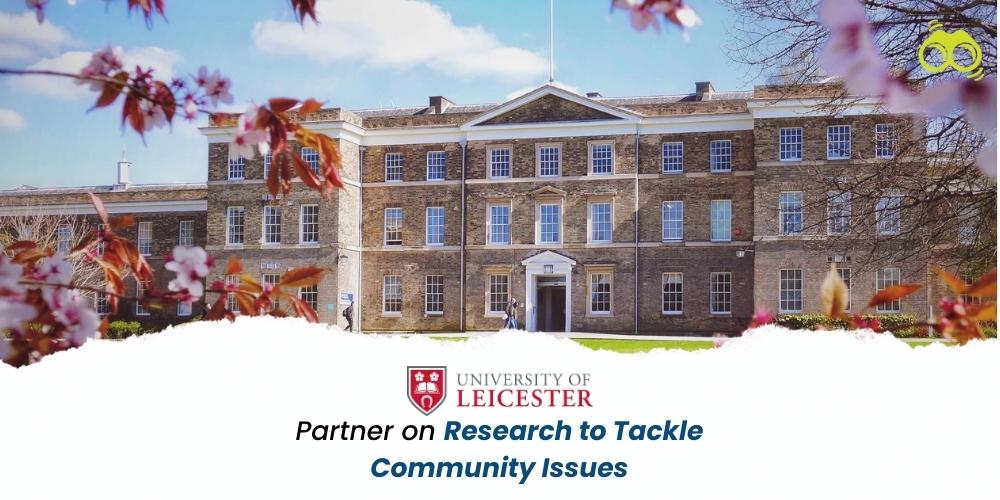Bridging Academia and Community: UK Universities Launch Transformative Research Programme
Higher Education Meets Civic Engagement: How UK Universities Are Strengthening Local Communities
Universities play a pivotal role in shaping communities beyond their academic responsibilities by fostering regional development and driving social change. In a landmark initiative, five UK universities—the University of Leicester, De Montfort University, Loughborough University, Nottingham Trent University, and the University of Nottingham—have come together to bridge the gap between academia and local communities. This collaborative effort, known as the Collaboratory programme, aims to enhance community wellbeing, create new opportunities for regional growth, and support inclusive research.
Launched in 2022 as part of the Universities for Nottingham Civic Agreement, this ambitious eight-year programme provides a platform for students, particularly those from non-traditional academic backgrounds, to engage in research that directly benefits surrounding communities. Projects under the initiative have explored crucial social issues such as youth transitions from education to employment in former coalfield regions, trust in health-promotion activities post-COVID-19, and the role of sports in violence prevention, exemplified by a project titled Boxing in the Community: Moving Beyond the Myths of Sports’ Positive Potentials to Reduce Violence.
The programme, primarily funded by Research England and participating universities, recently secured an additional £2.3 million from the Research England Development Fund. This funding facilitated the inclusion of three Leicestershire universities and the Leicester Civic Agreement, expanding the programme’s regional reach. Notably, the funding panel was impressed by the initiative’s ability to attract PhD candidates and community researchers from diverse local backgrounds. With the new grant, 27 fully funded PhD studentships will be introduced in Leicestershire, raising the total number of civically engaged doctoral projects to 77. The programme also supports citizen-scientist placements and student-led civic projects.
Rebekah Smith McGloin, Director of Research Culture and Environment at Nottingham Trent University, acknowledged the programme as a pioneering initiative in the higher education sector and welcomed its expansion into Leicester and Leicestershire. She emphasised its potential to create a lasting positive impact on local communities. Senior academics from three leading Leicestershire universities have echoed their support for the Collaboratory programme. Professor Richard Thomas, Pro Vice-Chancellor for Research and Enterprise at the University of Leicester, described the initiative as a valuable opportunity for researchers from non-traditional backgrounds to develop academic skills while contributing to community wellbeing. He highlighted how the programme aligns with the university’s strategic aim to cultivate future research leaders and generate impactful, community-focused ideas.
Similarly, Professor Mike Kagioglou, Deputy Vice-Chancellor for Planning, Research and Innovation at De Montfort University (DMU), noted DMU’s pride in joining an initiative that places communities at the heart of academic research. He pointed out that the programme offers a powerful avenue to expand access to doctoral studies for individuals from diverse backgrounds while ensuring research remains relevant to real-world regional challenges. Stressing the importance of amplifying new research voices, strengthening community links, and nurturing the next generation of impactful scholars, he underscored the significance of inclusive academic engagement.
Professor Steve Christie, Associate Pro Vice-Chancellor for the Doctoral College at Loughborough University, also welcomed the collaboration, highlighting its potential to unite Leicestershire and Nottinghamshire universities on research efforts directly benefiting local communities. He remarked that the programme aligns with Loughborough’s commitment to fostering vibrant, inclusive academic environments and expressed enthusiasm for welcoming new doctoral researchers.
The Collaboratory programme is now inviting civic and community organisations from Leicester, Leicestershire, and Rutland to identify local challenges and explore research collaborations. If selected, community partners will gain access to a range of valuable opportunities beyond research participation. These partners will join a growing community of practice networks, comprising professionals from local organisations supported by the Collaboratory team, to facilitate knowledge-sharing and maximise the benefits of university collaborations.
Additionally, community partners and their colleagues will be offered a series of continuing professional development (CPD) sessions focused on research skills. These sessions provide practical training in essential research concepts, tools, and methodologies tailored to the challenges faced by community-based organisations. Furthermore, partners will receive associate access to participating universities, granting them entry to advanced researcher development programmes, academic resources, and institutional facilities.
Programme leaders have highlighted that working directly with university researchers enables community partners to shape and guide research projects effectively. This collaboration ensures that research remains aligned with the needs and priorities of partner organisations and the communities they serve. To encourage engagement, the programme is conducting information webinars for researchers, civic groups, and community organisations. These sessions introduce the Collaboratory programme, detail the co-creation process, and provide clarity on research expectations and methodologies. With its emphasis on inclusive academic research and civic engagement, the programme is set to make a lasting impact on local communities while fostering meaningful university-community collaborations.
Editor's Note:
The Collaboratory programme is a strong example of how universities can contribute to society in ways that go beyond traditional teaching and research. By bringing together leading academic institutions and working closely with local communities, the programme helps connect higher education with real-world challenges and solutions. What makes this initiative especially valuable is its focus on inclusivity. It opens up research opportunities to people from non-traditional backgrounds and ensures that academic work addresses issues that matter to local communities. At a time when universities are sometimes seen as being out of touch with society, the Collaboratory sets a positive example of meaningful civic engagement. This programme also reflects a wider change in higher education, where there is growing interest in socially responsible research. The significant funding it has received shows increasing support for university-community partnerships.
Skoobuzz believes that as universities around the world look to make a greater impact, the Collaboratory provides a useful model—one that promotes local involvement, develops future leaders, and ensures academic work brings real benefits to society.














0 Comments (Please Login To Continue)